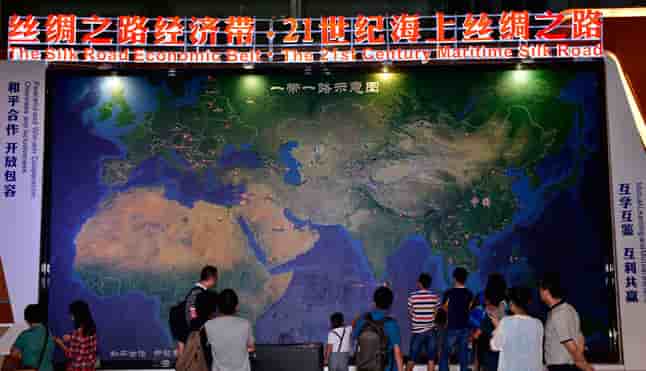
China persists in its attempts to get Spain to participate in the Strip and Road Initiative, but neither the Spanish Government, enshrined in the diplomatic code imposed by Brussels, nor Spanish companies, cautious in the face of possible investment risks, end up being the work of embarking on the ambitious billionaire project devised by Xi Jinping.
Fifty investors and entrepreneurs traveled this week from Beijing and Hong Kong to Madrid to hold institutional meetings and bilateral rounds of contacts with Spanish companies. In total, the CEOE met on Monday to more than 300 large Spanish and Chinese multinational companies of infrastructures, engineering and consultants, including energy companies such as China Energy Co .; of transportation, such as China Railway International Group; and telecommunications, such as China Huaxin Post and Telecom Technologies. This high-level mission sought to capture the interest of the main Spanish infrastructure and construction companies, railways and energy, to convince them to join the investment opportunities provided by the Strip and the Road (BRI, for its acronym in English). "Chinese companies seek to invest in third countries with the collaboration of Spanish companies," said CEOE. "The potential of Spanish companies is enormous," explains Joseph Yau, executive director of AMTD, a financial company that is part of the delegation.
In addition, Spain represents an excellent platform for access to European countries and North Africa and Latin America. For example, Jackson Chack, CEO of electronics Mictronics, is looking in Spain for a partner to distribute its products in South America.
The problem is that Spanish businessmen find risks associated with the BRI infrastructure projects, which in turn makes it difficult to finance projects. "Many of the countries throughout the initiative have weak institutions and an unfavorable climate for business, in addition to complex political scenarios, with unpredictable policies and regulations and greater monetary financial risk," says the KPMG consultancy in a report presented yesterday. , in a final encounter with the mission of Chinese investors.
In the case of Spain, its participation in BRI is limited to investment in projects from third countries, since with the exception of the train that connects Madrid with the Chinese city of Yiwu, Spain is not in the pools of future projects. Despite having significant maritime connectivity opportunities in Barcelona, Valencia and Algeciras, none of its ports are part of the new maritime route to the Mediterranean through the Suez Canal, which ends at the ports of Piraeus and Venice. It is no coincidence that Greece and Italy are among the few EU countries that have officially joined the Strip and the Route. The Government of Spain, on the other hand, chose to align itself with the position of the big ones of the EU, France and Germany.
The possibility, therefore, that Spain joins the initiative rests on the thrust of its companies and, in any case, on the institutional support they may receive for specific projects. This has not diminished the interest of Chinese groups that find in Spanish companies the added value of extensive experience in the construction of complex infrastructures, such as long burials for high-speed trains or infrastructures to overcome difficult terrain. But for this, explains David Höhn, Partner responsible for Transaction Services and the Chinese Practice of KPMG, "it will be necessary for a Spanish company to open the ban and join a pilot project of the Strip and the Route to infect others". Among the investment opportunities for this drag effect, which has mobilized 90,000 million dollars in direct investment by Chinese companies, there are important projects such as the development of the Jakarta-Bandung high-speed train, led in Indonesia by China Railway Corporation, a of the companies that made up the delegation; the construction of the port of Sri Lanka, with an investment of 1,400 million dollars; the ports of Zeebrugge (Belgium) or Gwadar (Pakistan); or the bridges of Temburong (Brunei) and Peljesac (Croatia).
Digital Newspaper Expansión
